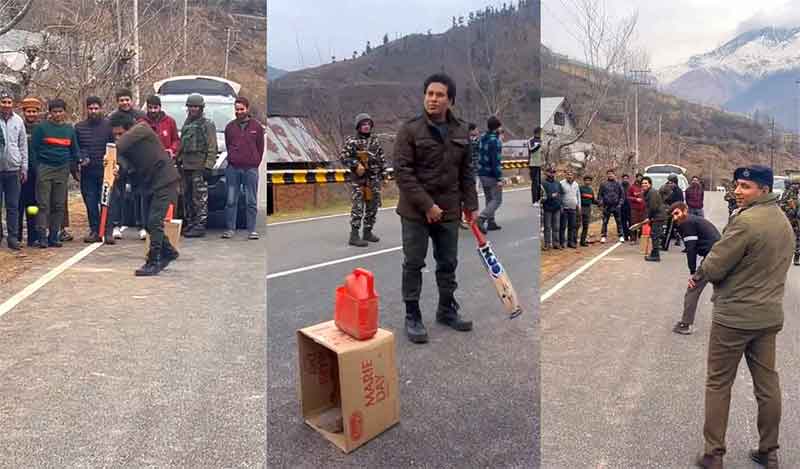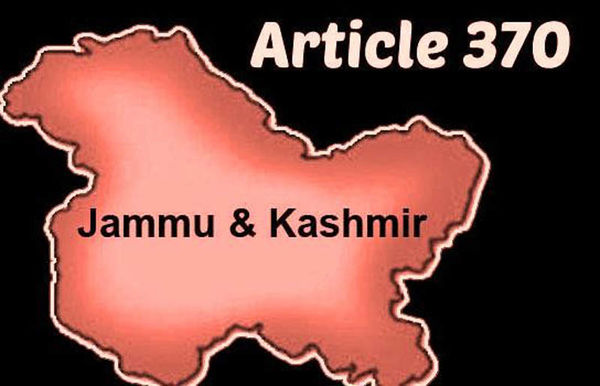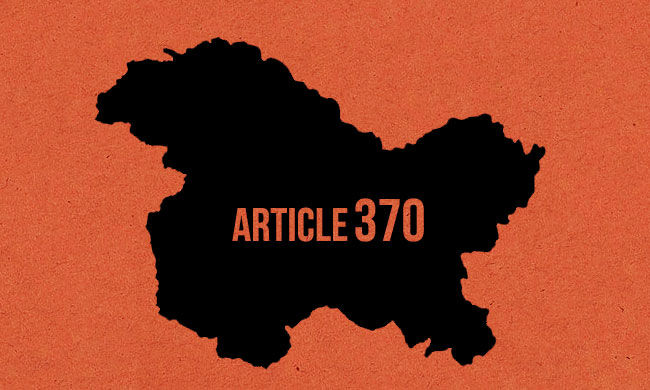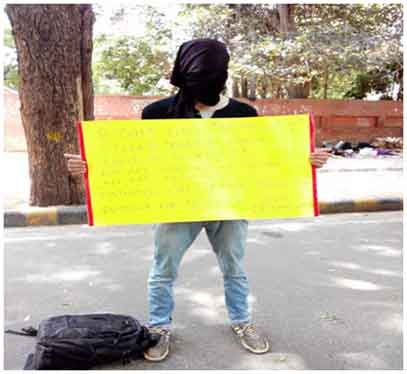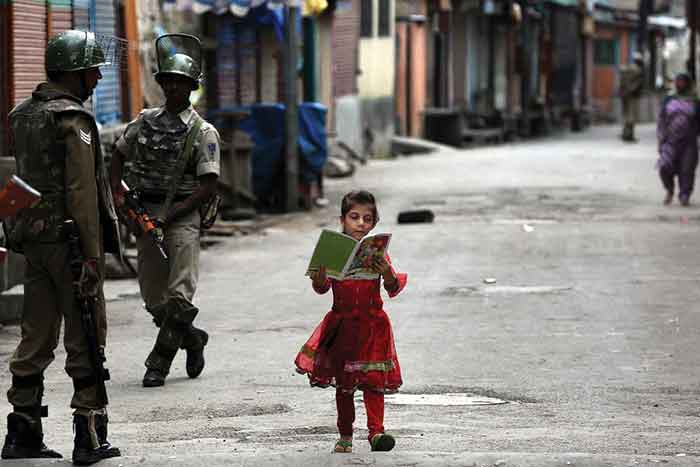
Srinagar: Seven years ago, 45-year-old Yasmeen* witnessed the death of her brother, who was caught in a cross-fire between militants and army personnel in Kulgam, 67 km from Srinagar. For years, she was traumatised by the shrieks and the sight of him dying in a pool of blood. She was eventually diagnosed with post-traumatic stress disorder and dissociative disorder.
“She is from a poor family and used to procure free medicines from the lone tertiary-care Government Psychiatry Hospital of the valley in Srinagar. But due to the Covid-induced lockdown, she could neither visit the hospital for check-ups nor attend counselling sessions,” Senior Clinical Psychologist Institute of Mental Health and Neuro Sciences (IMHANS) Ajaz Ahmad Khan said.
Without her medicines and sessions, she had a “major relapse” in May.
Yasmeen’s is not an isolated case. Manzoor Ahmad* (49) from Tral, 40 km from the summer capital, was diagnosed with Obsessive-Compulsive Disorder (OCD) that left him constantly fearful and cowering. “As his OCD had aggravated, he relapsed badly. With no stable source of income during the lockdown, he could not visit the hospital on time and he stopped taking medicines,” Khan said.
His deterioration was so bad that the local Masjid Committee collected money on his behalf and arranged a cab to bring him to the hospital in June.
Professor at IMHANS, Dr Yasir Rather, said the pandemic has precipitated a lot of mental health issues. The lockdown, fear and uncertainty, financial stressors, emotional stressors, disruption of routine and many other associated changes have resulted in anxiety, depressive features, post-Covid syndrome, disenfranchised grief and other mental issues, especially among the marginalised sections of the society.
“It has instilled the feeling of hopelessness in people and with each passing day, people are just accepting it as their fate. But this helplessness pushes them more towards a negative view towards self, future and the world,” he said.
Dr Rather pointed out that there are a significant number of underprivileged people, especially from rural areas, who procure free medicines from the government psychiatry hospital. To prevent relapses among these people, the doctors here started prescribing longer follow-ups and medications to cover them during this time,” he said.
 A recent study conducted by doctors at Jawahar Lal Nehru Memorial Hospital (JLNM) hospital, Rainawari has revealed that delivering mental health services to people during lockdown is a challenge. Titled `Severity of depression, anxiety, and stress among the people of Kashmir, India during COVID-19: An observation from telepsychiatric services’, the 2021 study interviewed a total of 293 people between 31-59 years through teleconsultation. “The majority of participants had severe anxiety (94.2%), moderate depression (42.7%), and 48.5% were experiencing moderate to severe stress,” the study revealed.
A recent study conducted by doctors at Jawahar Lal Nehru Memorial Hospital (JLNM) hospital, Rainawari has revealed that delivering mental health services to people during lockdown is a challenge. Titled `Severity of depression, anxiety, and stress among the people of Kashmir, India during COVID-19: An observation from telepsychiatric services’, the 2021 study interviewed a total of 293 people between 31-59 years through teleconsultation. “The majority of participants had severe anxiety (94.2%), moderate depression (42.7%), and 48.5% were experiencing moderate to severe stress,” the study revealed.
Frequent and prolonged communications blackouts in the valley only compounded the impact of the lockdown. “Just before the start of this global crisis, the government had lifted a seven-month internet communications blackout in the valley – and also restricted the internet access to 2G services,” it said.
Even before the pandemic, prolonged violence and siege in the Kashmir Valley over the past two decades had fueled an explosive increase in various psychiatric disorders. Unremitting exposure to death, injury and deprivation has led to a weakening of the social and psychological fabric of the society – institutions like families are collapsing under the constant exposure to trauma, compounded by natural disasters like deadly earthquakes and floods. Major depressive disorders, anxiety disorders and somatization are quite pervasive.
A 2021 study, entitled ‘Prevalence of trauma among young adults exposed to stressful events of armed conflicts in South Asia: Experiences from Kashmir’, revealed that “the prevalence of trauma was 100% in both males and females”. An overwhelming majority of people reported “feeling stressed” (97.3%), while most were also affected by “fear of search operations, crackdowns or curfews” (89.2%); “witnessing a protest or being part of it” (88.3%); “a family member, relative or friend being hit with a bullet, pellet, or any other explosive” (76.5%); and “exposure to violent media portrayals” (74.3%).
But according to the official figures, there are only about 50 psychiatrists and 25 clinical psychologists operating in the valley.
Decentralising mental healthcare
The government’s mental health rehabilitation helpline has received 7,003 callers since April 27, predominantly from Srinagar and between the ages of 31 and 50. This highlights the digital divide that denies these options to mental health sufferers living in the periphery and rural areas, according to an official at IMHANS who didn’t wish to be named.
Often the psychiatric set-up in district hospitals closer to home is skeletal.
“There is a provision of professional psychiatrists but no trained clinical psychologists and psychiatric social workers are available at the district hospitals in Kashmir. Moreover, the psychologists posted at the district hospitals are postgraduates from the field of psychology, sociology or social work recruited under the National Health Mission. They lack the required exposure and training to treat a patient,” a source in IMHANS said.
They added that free psychiatric medicines are not made available at the district hospitals. “There is no provision to make free psychotropic drugs available at any district hospital. Only life-saving drugs are available there. Subsequently, the burden falls on the lone tertiary care hospital at Srinagar,” they said.
Currently, the tertiary care hospital in Srinagar sees roughly around 200 patients at the general psychiatric OPD on average every day. Before the pandemic, the number used to be closer to 150. The increased patient load means the OPD works longer hours rather than just between 10.30 am – 4 pm.
Deploying solutions
Dr Rather said that during these Covid times, telepsychiatry is the best alternative to in-person checkups but this is still in the initial phases as people need time to adjust to it.
“Ten years ago online shopping was rare and we couldn’t imagine that we’d be purchasing everything online. So it is a process of acceptance and adjustment. Tele-psychiatry is effective as one-on-one mental health services mostly revolve around assessment through talking, which can also happen through online mode,” he said.
Community Medicine Specialist at Government Medical College, Srinagar, Dr Sheikh Mohammad Saleem, said telehealth could increase the delivery of mental health services and may decrease the treatment gap for mental disorders.
“It can be a feasible approach. With minimum utilisation of existing resources, we can increase the accessibility and affordability of mental health interventions to help patients. It also decreases the burden on healthcare professionals delivering services in pandemics, and the risk of transmission of the disease is nullified,” Dr Saleem said.
Meanwhile, Dr Rather recommended that community camps for mental health awareness can act as a bridge across the treatment gap and can help motivate people to seek help. They can help bust misconceptions about mental health like “people who take anti-depressants have a weak coping mechanism, seeking help is cowardice, psychotropic drugs make one addictive and counselling and psychotherapy alter people’s thinking instantly,” according to Dr Sheikh Shoib, Consultant Psychiatrist at JLNM Hospital, Rainawari.
*(name changed to protect identity)
Hirra Azmat is a freelance journalist and a member of 101Reporters.com, a pan-India network of grassroots reporters.

